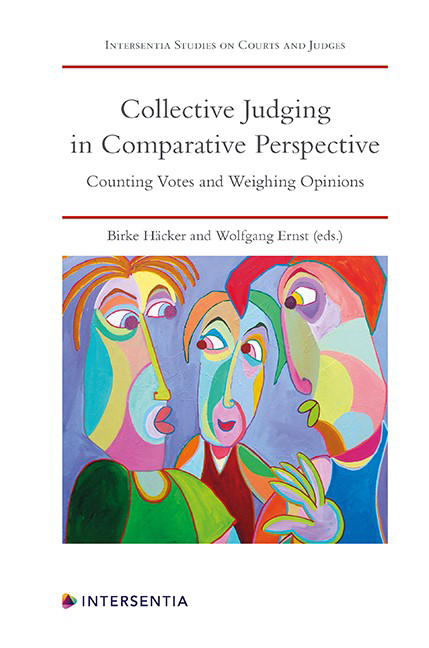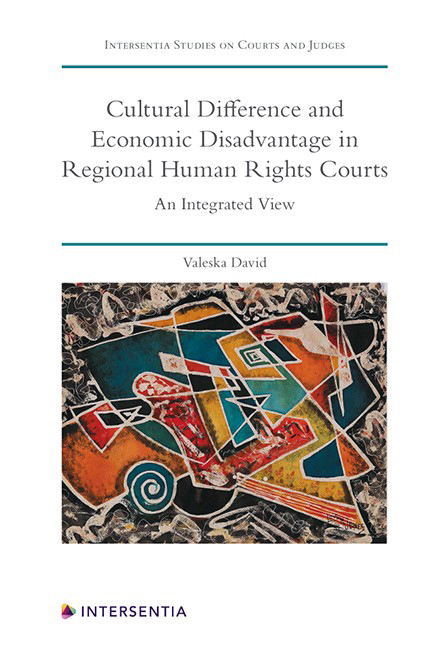3 results in Intersentia Studies on Courts and Judges

Effective Judicial Protection in Consumer Litigation
- Article 47 of the EU Charter in Practice
-
- Published by:
- Intersentia
- Published online:
- 19 November 2022
- Print publication:
- 30 March 2022

Collective Judging in Comparative Perspective
- Counting Votes and Weighing Opinions
-
- Published by:
- Intersentia
- Published online:
- 09 February 2021
- Print publication:
- 31 August 2020

Cultural Difference and Economic Disadvantage in Regional Human Rights Courts
- An Integrated View
-
- Published by:
- Intersentia
- Published online:
- 21 July 2020
- Print publication:
- 25 March 2020

